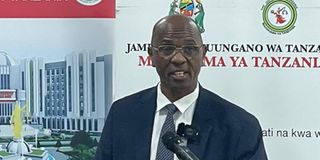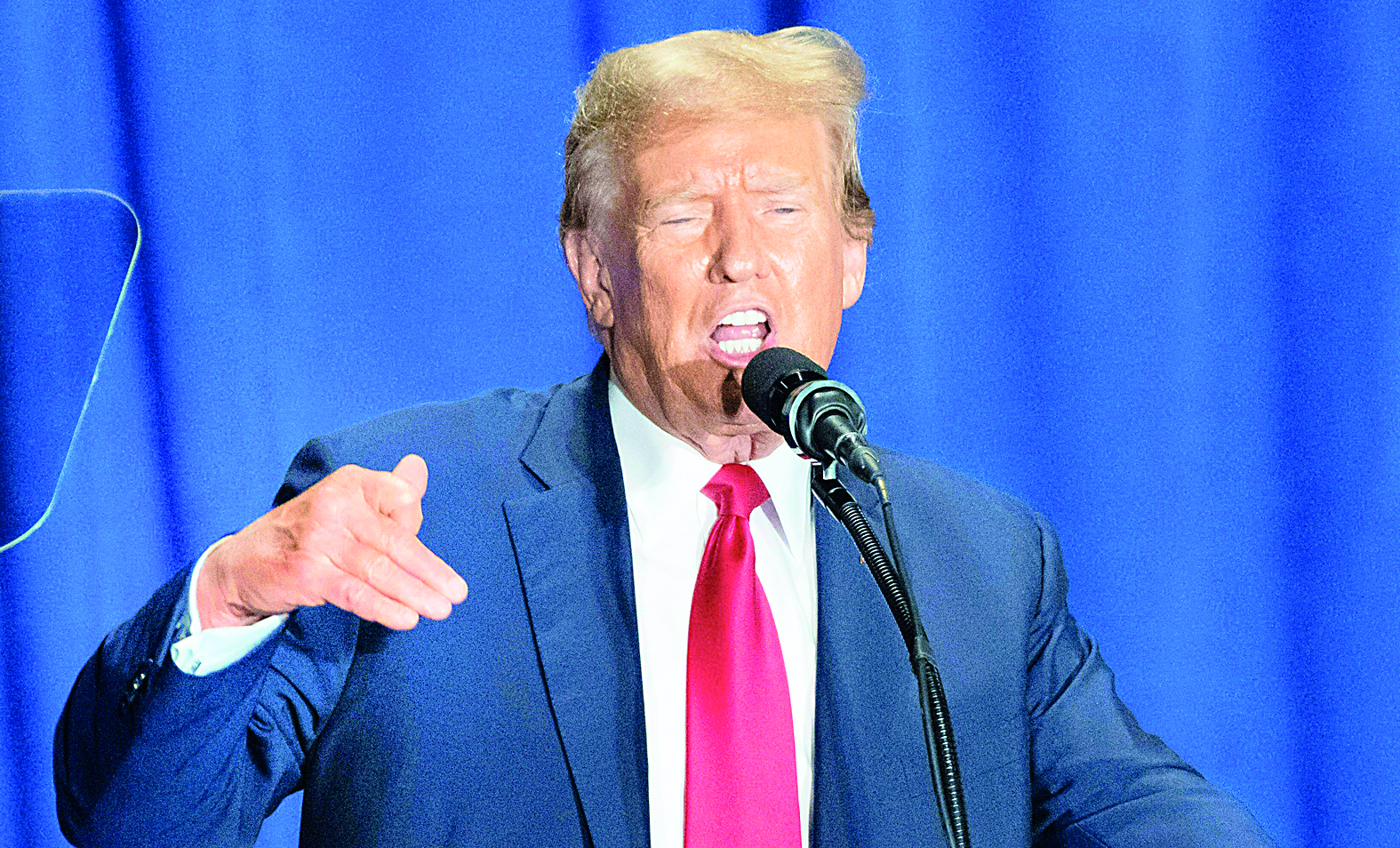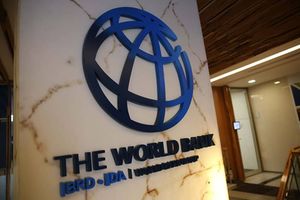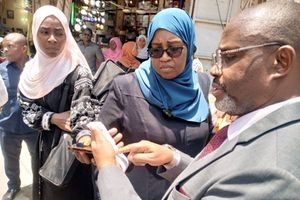Samia to inaugurate Tanzania’s new judiciary headquarters that contains helicopter landing space

Tanzania's Chief Executive Officer of the Judiciary, Prof Elisante Ole Gabriel, explains the buildings to be inaugurated by President Samia Suluhu Hassan on April 5, 2025. PHOTO | SHARON SAUWA.
What you need to know:
- The President will also open 48 new judges' residences, valued at Sh42.3 billion, addressing the long-standing housing challenges for judges in Dodoma.
Dodoma. President Samia Suluhu Hassan is set to officially inaugurate the new Tanzania Judiciary headquarters, a state-of-the-art building designed in the shape of a star.
The facility, which includes a designated helicopter landing area, is expected to revolutionise the country’s judiciary infrastructure.
The building, located in Dodoma, will also house the High Court, the Court of Appeal, and, for the first time, space for the Supreme Court, which is not yet recognised in the Tanzanian Constitution. The inauguration is scheduled for April 5, 2025.
Speaking to the media on April 3, 2025, Tanzania's Chief Executive Officer of the Judiciary, Prof Elisante Ole Gabriel, said the building, which stands at nine storeys, has been constructed at a cost of Sh129.7 billion, with Sh19.7 billion allocated to cover VAT.
"The idea for this building began in 2012. Initially, it was planned for Dar es Salaam, but after the government moved to Dodoma in 2017, the construction was relocated here," Prof Gabriel said.
The design features a unique star shape, with each “point” of the star dedicated to a different branch of the judiciary: the High Court, the Court of Appeal, and the Supreme Court. A central administrative building connects these three sections, with modern ICT infrastructure and space for a helicopter landing pad.
Prof Gabriel revealed that while mobile courts are currently in use, the Judiciary is considering the possibility of establishing “flying courts.” These courts would see helicopters transport judges to various locations for hearings, before returning them to their base.
The construction of this monumental building, which is the first of its kind in Tanzania since independence, was entirely funded by domestic resources.
The new headquarters will not only house courtrooms but also include facilities such as a breastfeeding area, rooms for religious leaders, lawyers, psychologists and spaces dedicated to juvenile detainees, as well as separate facilities for men and women.
In addition to the new court headquarters, President Samia will inaugurate the Judiciary Service Commission building, which cost Sh14.3 billion. The government also allocated Sh562 million to assist in the relocation of staff.
The President will also open 48 new judges' residences, valued at Sh42.3 billion, addressing the long-standing housing challenges for judges in Dodoma.
"With the completion of these residences, the housing issue for judges in Dodoma has been fully resolved," said Prof Gabriel. "We are now considering building additional facilities in Dar es Salaam, where we own prime land in the city centre."
Over the past four years, the government has made significant strides in improving the judiciary's infrastructure. Prof Gabriel highlighted an increase in the judiciary's budget, which has grown from Sh160 billion in 2021/22 to Sh321 billion for the 2025/26 fiscal year. A total of Sh416.46 billion has been invested in judicial infrastructure, with Sh67.5 billion spent on primary courts and Sh29.7 billion on district court construction.
The Judiciary has also constructed six integrated court centres in various regions, including Dar es Salaam, Dodoma, Morogoro, Mwanza, and Arusha. The cost of these centres, which is Sh51.45 billion, was financed through a low-interest loan from the World Bank.
Professor Gabriel also announced that the World Bank has extended an additional loan of $90 million (approximately Sh203 billion) for the construction of nine more integrated court centres across the country, with locations in Songea (Ruvuma), Lindi, Njombe, Songwe, Katavi, Singida, Geita, Simiyu, and one centre in Chakechake, Pemba, Zanzibar.
Additionally, Sh3.2 billion has been allocated for the renovation of court buildings in Tabora and Dodoma, which will now serve as family courts.
Local residents, including Helena Mshana from Nkhungu, have expressed optimism about the new facility, stating that it will enhance the appearance of court buildings and make them more attractive and functional.




